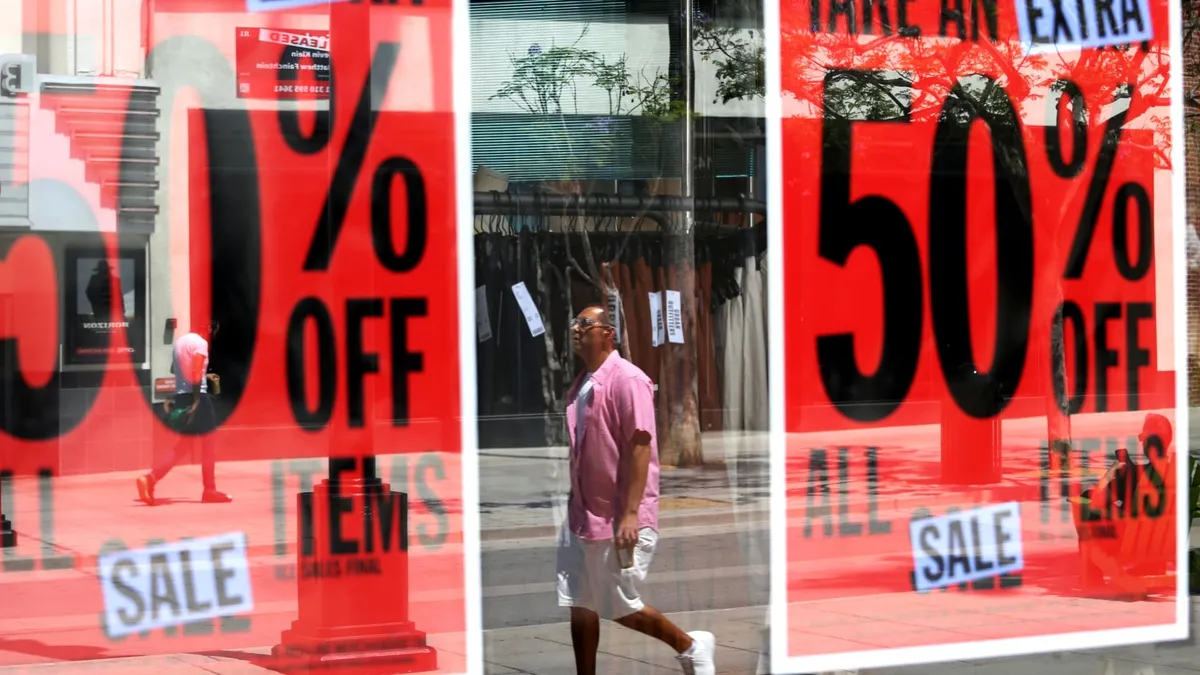
As consumer spending is anticipated to decline, many retailers are leveraging President Donald Trump's trade war as a strategic marketing tool. They are encouraging consumers to make purchases now, before potential tariff-induced price increases or product shortages occur. A variety of private and direct-to-consumer brands, including Beis, Bare Necessities, Fashion Nova, and Knix, have explicitly mentioned tariffs in their marketing campaigns following Trump's announcement of steep reciprocal tariffs on numerous countries.
Although the administration later temporarily reduced tariffs for most nations, the uncertainty surrounding the future of these tariffs has plunged the retail sector into crisis mode. Retailers are finding it increasingly challenging to plan their operations, as the unpredictability of tariffs complicates their business strategies. Experts predict a significant drop in consumer spending, creating hurdles for both large and small companies that may struggle to navigate this turbulent period.
Many businesses importing goods from China, now facing a staggering 145% duty, have paused or even canceled orders. Conversely, companies with supply chains in countries like Vietnam and Cambodia are stockpiling inventory, as the higher tariffs remain on hold. The impact of these tariffs varies significantly among retailers, sectors, and brands, yet Trump's trade war presents an existential challenge for many retailers reliant on consumer discretionary spending.
Some brands, like the lingerie retailer Bare Necessities, have creatively responded to this situation by launching pre-tariff sales, offering discounts of around 30%. Their marketing messages encourage consumers to stock up before tariffs take effect, stating, “Tariffs? No clue. A good deal? We got you. Save up to 30% before prices shift.” This approach not only attracts customers but also alleviates their immediate financial concerns.
According to Sonia Lapinsky, a partner and managing director at consulting firm AlixPartners, temporarily lowering prices may seem counterintuitive, but it is a wise strategy for retailers aiming to bolster their financial health before a potential downturn in consumer demand. She emphasizes the urgency for retailers to maximize demand quickly, stating, "From our perspective, things are going to really fall off a cliff."
For smaller brands that lack the scale and global reach of larger retailers, boosting cash flow before demand decreases is vital for survival. Lauren Beitelspacher, a marketing professor at Babson College, notes that smaller companies are likely to be hit harder by tariffs due to their limited supply chain options compared to giants like Target and Walmart, which have more diverse sourcing capabilities.
Interestingly, pre-tariff promotions may explain why consumer spending data in March exceeded expectations. Some shoppers are making large purchases now, particularly for high-ticket items such as cars, in anticipation of rising prices. "People who have the means are getting out there shopping so that they can get their purchases in before the prices go up," Lapinsky adds.
Brands such as Beis have chosen not to conduct outright pre-tariff sales but instead opted for transparency, informing customers that they are unsure of future price changes. In a candid letter to shoppers, Beis acknowledged the confusion surrounding the tariff situation, humorously stating, “This tariff situation is a complete dumpster fire, and we’re all getting burned.” They added a subtle call to action, encouraging customers to make purchases while current pricing remains unchanged.
Utilizing humor to address a politically charged topic like tariffs is a strategic move, as most brands prefer not to alienate customers based on their political beliefs. Barbara Kahn, a marketing professor at The Wharton School, explains that brands aim to neutralize political implications surrounding tariffs while still promoting sales. By injecting humor into their messaging, they transform a potentially divisive issue into an opportunity for consumers to take advantage of good deals.
In summary, as retailers navigate the complexities of Trump's trade war, their innovative marketing approaches—ranging from pre-tariff sales to humor-infused communications—are crucial for maintaining consumer engagement and financial stability in uncertain times.